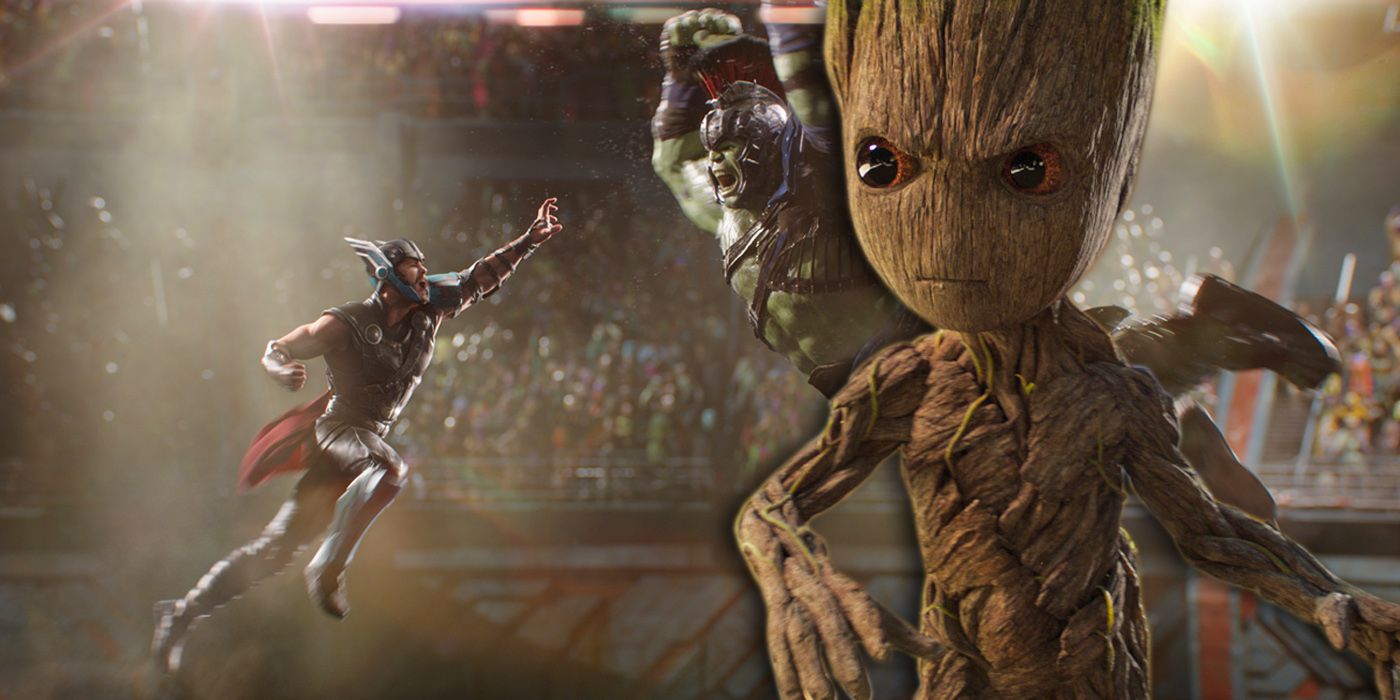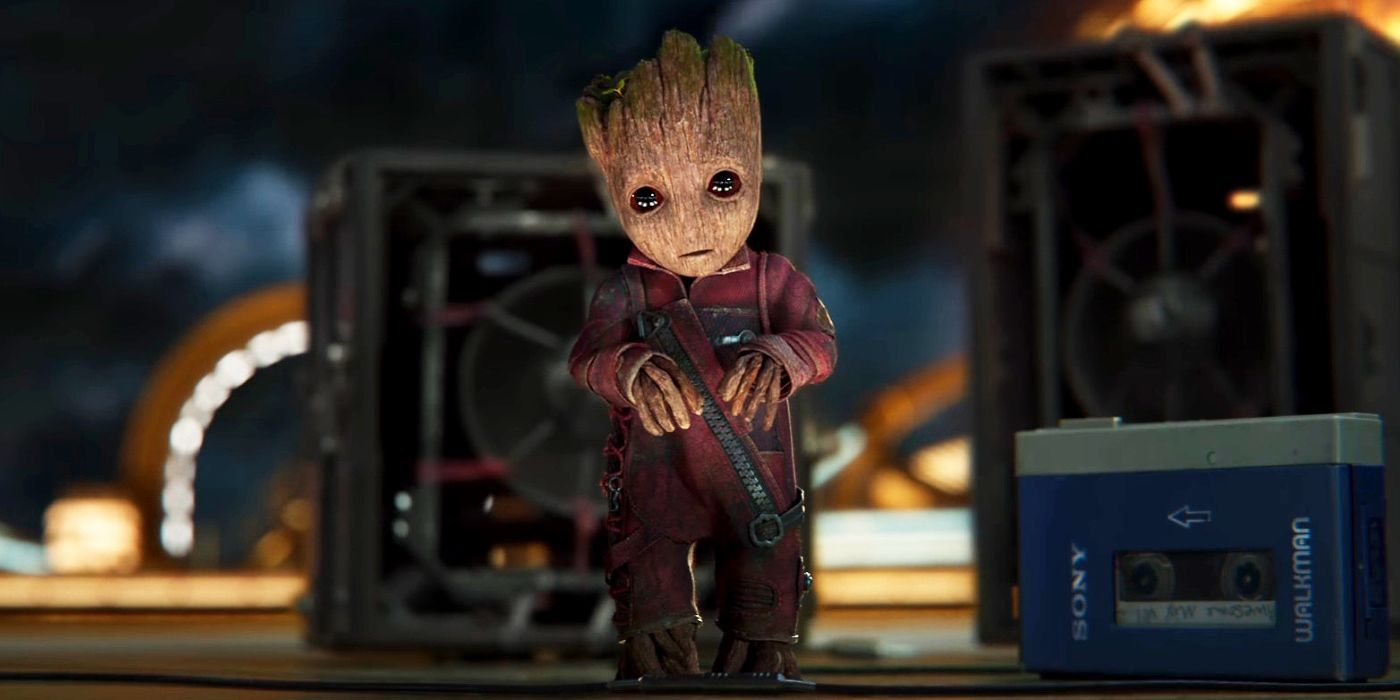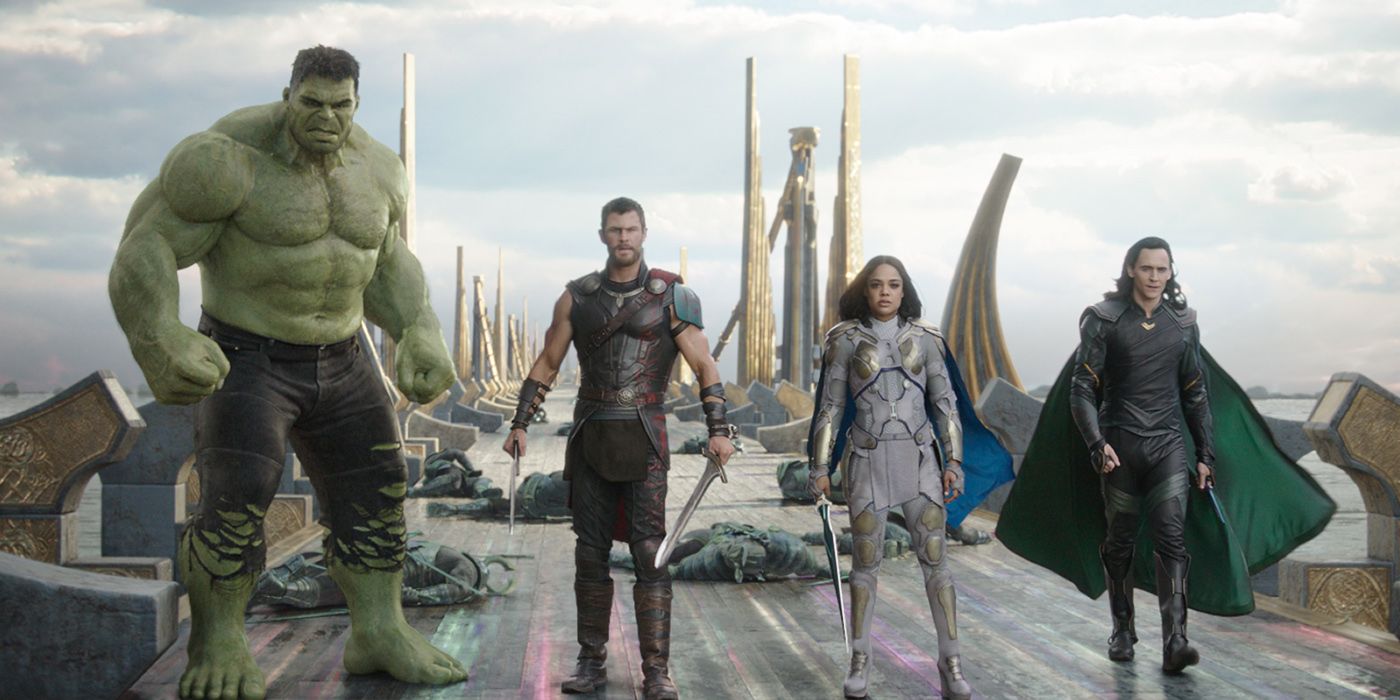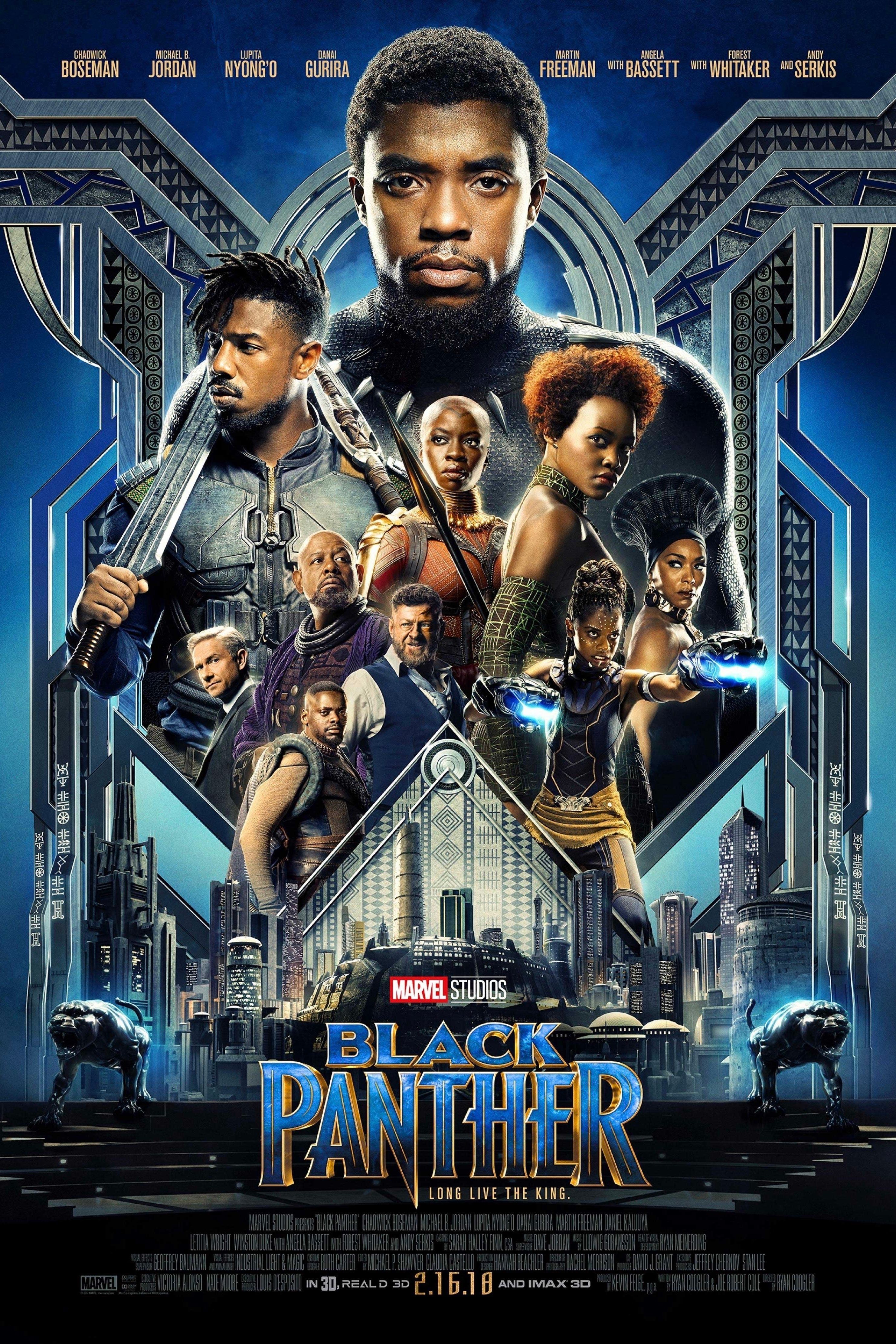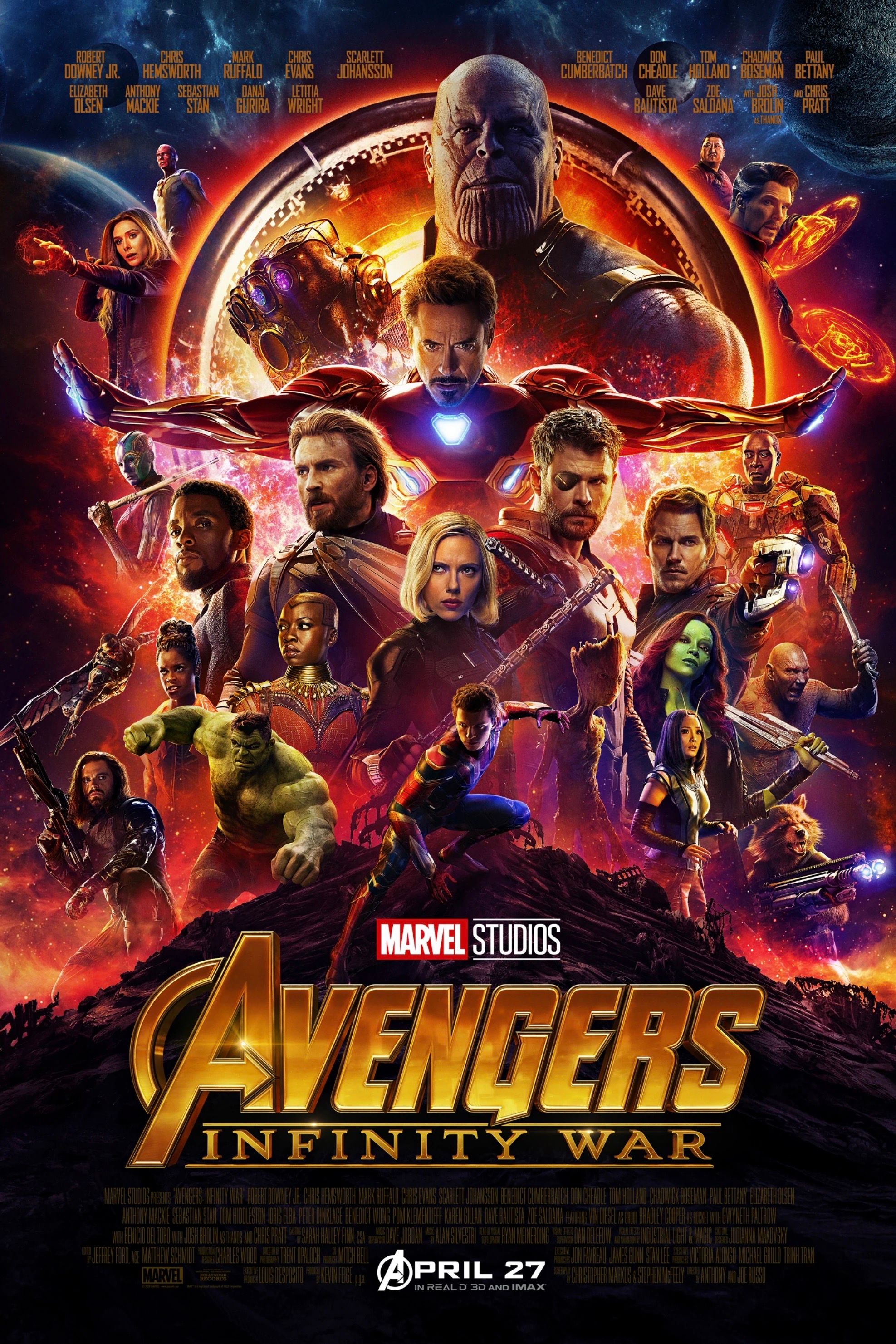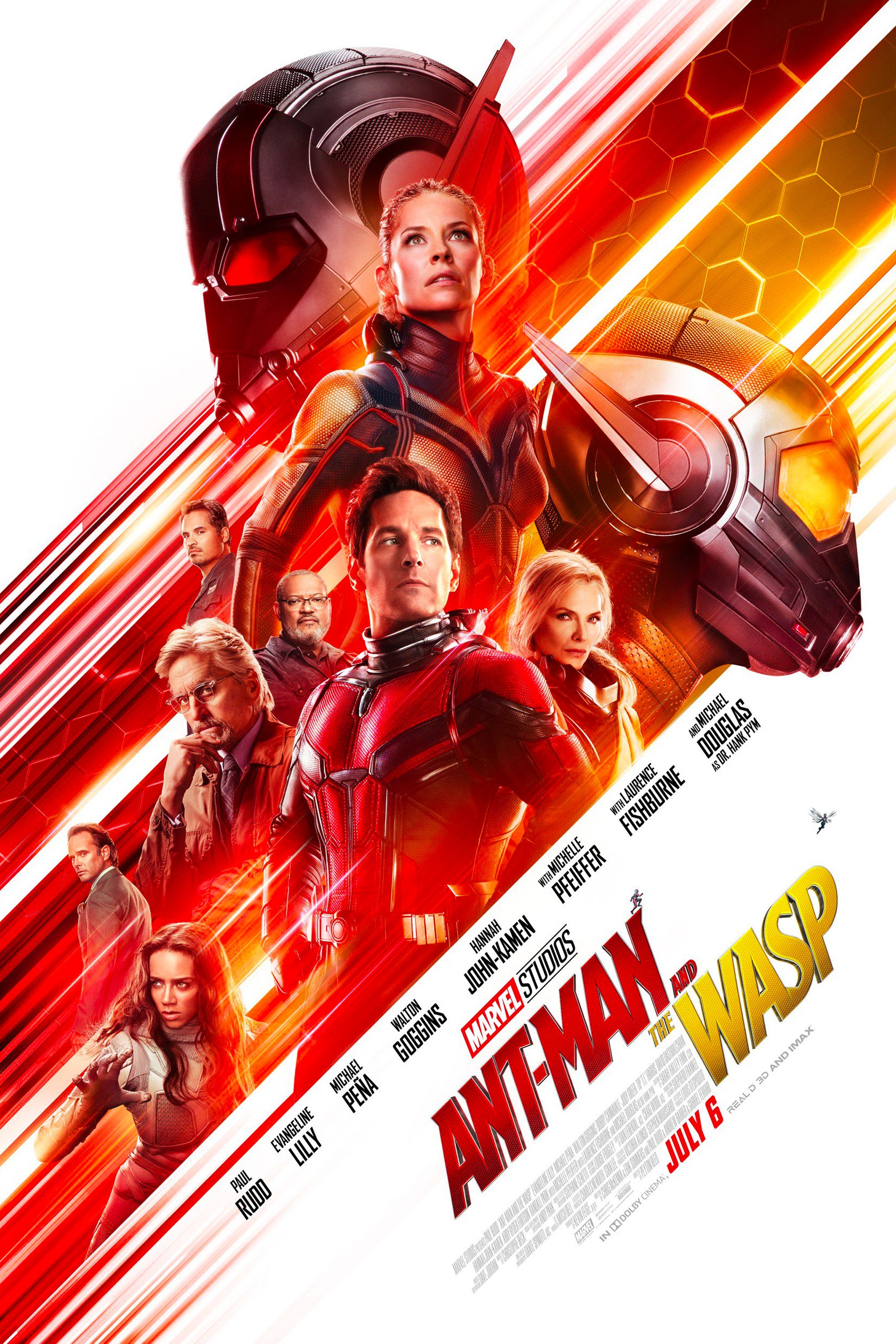Thor: Ragnarok is a stylish film, seen no better than with its incredible soundtrack - one that blows Guardians of the Galaxy Vol. 2's out of the water. As expected, Ragnarok has become a worldwide hit. The rich visual style and comedic chops of the film have garnered high praise across the board, Tessa Thompson's Valkyrie and Jeff Goldblum's Grandmaster both becoming new fan-favorites. The Taika Waititi directed effort is one of the most distinct movies Marvel Studios have produced, and fans have really rallied around the eccentric sci-fi romp. But there's one aspect in which the Odinson's third outing particularly excels – the music. Ragnarok's synth-soaked soundtrack is an integral factor in its tonality, being not just the best score of the Marvel Cinematic Universe no question, but also one of the best scores of the year full-stop.
Scoring has consistently been the weak link to Marvel Studios' output. Despite attracting some of the best composers working in cinema like Alan Silvestri, Michael Giacchino and Craig Armstrong, the soundtracks have a tendency to be rather forgettable. Immaculately produced and entertaining when listened in isolation no doubt, the themes lack the vigor of the likes of John Williams' soaring Superman score or the drama of Danny Elfman's work for Sam Raimi's Spider-Man. YouTube channel Every Frame A Painting even did a video asking fans to hum various famous character themes, and tellingly none could recreate anything from The Avengers. For a studio whose franchises are dominating cinema and pop culture, the musical shortcomings have only become more glaring with time.
Read More: Where Have All the Memorable Movie Scores Gone?
Previous to Ragnarok, the only director who managed to avoid this problem was James Gunn with the Guardians of the Galaxy movies. Instead of original compositions, Gunn mostly uses a playlist of classic pop, funk and rock songs that tie into the main narrative and thus the thematic DNA of the pictures. It's a clever move and one that's paid off thousandfold as several scenes from the two films were made unforgettable thanks to their juxtaposition with a '70s dancefloor tune or pairing with a widely recognized emotive ballad.
But Gunn's approach of soundtrack curation has its downsides, one of which is the foregoing of the movie developing an audio identity of its own. What Waititi and composer Mark Mothersbaugh achieved in Ragnarok was making a movie that looks and sounds a certain way that captivates audiences. One of the biggest influences aside from artist Jack Kirby is rock album covers and how they can serve as a visual gateway for the kind of stories and themes the music explores. And any metal fan will see a resemblance in many of the shots to album covers from the likes of Yes, Iron Maiden or Meat Loaf – the fluorescent dystopia of Sakaar or the glittering beauty of Asgard. The film's opening, where Thor fights a giant dragon on a planet covered in fire and brimstone, is practically a Judas Priest LP brought to life in itself.
Music was a big part of the production right from the start. Part of the reason Waititi got the job was because he used Led Zeppelin's 'Immigrant Song' in his showreel, and unsurprisingly two of the biggest moments are made ever more momentous with Jimmy Page's audacious riff. But what's important is that the story doesn't rely on licensed music, 'Immigrant Song' merely compliments what's already there. The real work is done by the purpose-made sounds that flow through the movie. The chase for the Devil's anus, Valkyrie's flashback; big action scenes punctuated by music that sounds like it could only exist in those settings. This film isn't so keen on just telling another story fusing fantasy and sci-fi, it wants to take us there and really give us a sense of what these far-off worlds are like.
And that Thor as a property exists very much in-between fantasy and science-fiction in Marvel's cosmos is really fused into the audio. Mothersbaugh uses both a full orchestra and a plethora of '80s synths in tandem, making the music even more distinctive. On Asgard, there are more strings, the sway playing on the majesty of the realm of the Gods, while on Sakaar the synthesizers are dominant, pulsing and whirring like the madcap planet underneath. Both modes are utilized when needed, letting the audience dip and ascend with the highs and lows of the narrative.
Read More: Ragnarok’s Composer Reveals How He Broke the Marvel Soundtrack Curse
Marvel's films are increasingly coming under fire for their predictability, a side-effect of having such a strictly calendared production cycle with an ear towards as wide an audience as possible. The Every Frame A Painting video linked above discusses how modern blockbusters are often scored using “temp music”, where a director inserts existing pieces to get a feel for how they want a scene to play out. The problem is many composers are then given explicit guidelines for what they can do with the music, substantially limiting their role.
Mothersbaugh didn't go in for that. When he spoke with Screen Rant on how Waititi and Kevin Feige (President of Marvel Studios) had final say on the soundtrack, he revealed he created a way for them to adjust the prevalence of his various elements. Whatever they ended up with was his music, but it could be tailored to the director and studio's vision: “I wrote the score that you could dial back and forth how much electronics and how much human orchestra you wanted and so I gave Taika and Kevin the opportunity to, at their final mix, when they’re seeing everything that I haven’t even seen yet, I gave them the ability to take it further in to a new direction with new electronics, or they could pull it back out and stay in the world that was you know, the world that everyone knows as a Marvel universe. I think they did a good job of giving it a new sound. I think they did a good deal of giving it something new that’s still rooted and it’s got its foundations in the sound of Marvel that everyone expects.”
Although the director and Feige did with the work as they pleased, the important part is that Mothersbaugh was given relative free reign to dial in on what he thought suited the movie. This meant that the music went beyond functionality to being a vibrant, necessary element of the story. The soundtrack invigorates Thor: Ragnarok to the point where it's hard to imagine the movie sounding any other way. They have a synergy, a symbiotic relationship that doesn't explicitly play on nostalgia or cheap thrills to excite the audience, instead working to provide a fresh, exciting experience.
Ragnarok is a step forward for Marvel Studios. There's no chance the powers that be haven't taken notice of all the different ways people are responding to the movie, especially the music. Time will only tell if the improvements hold – 2018's Black Panther has enlisted Childish Gambino collaborator Ludwig Goransson, so it's unlikely we'll get any power ballads there, at the least.

